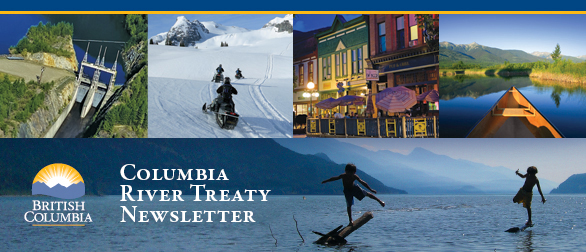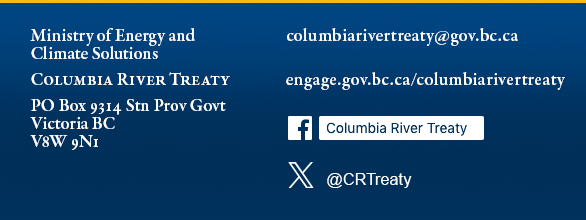Columbia River Treaty
Edition: February 2022

Feedback on Columbia River Treaty Agriculture Discussion Paper now available
Feb 14, 2022
Throughout the Province’s engagement on the Columbia River Treaty, Basin residents have spoken of agricultural losses sustained when valley bottoms were inundated after construction of the Treaty dams. In response, the B.C. Columbia River Treaty Team has been exploring opportunities for enhancing support to the Basin agriculture sector, specifically related to impacts from the Treaty.
In June 2021, the B.C. Treaty Team published a discussion paper for public review and feedback that featured a comprehensive list of Basin agriculture interests, matched with existing or recently closed programs and initiatives that appeared to address those interests. The question posed to the public was: are there remaining gaps in addressing agriculture interests and concerns, given available programs and initiatives?
The public comment period ran from June 18, 2021 to September 15, 2021. The B.C. Treaty Team also consulted with industry experts for their opinions regarding Columbia Basin agriculture challenges.
A report summarizing what was heard through this process is now available on the B.C. Columbia River Treaty website, as well as shared on Facebook and Twitter channels.
- by email to: columbiarivertreaty@gov.bc.ca
- by mail to:
Columbia River Treaty
Victoria BC V8W 9N1


